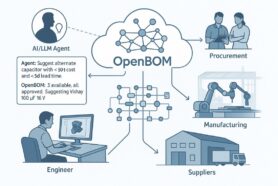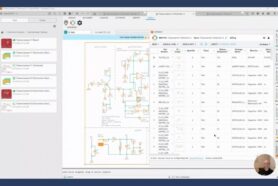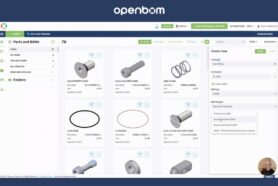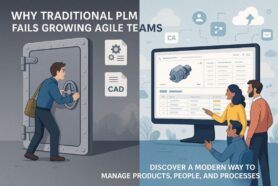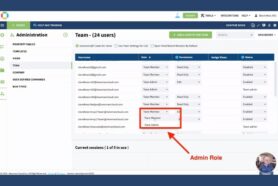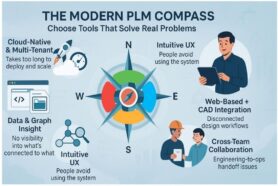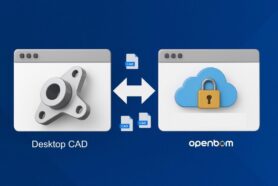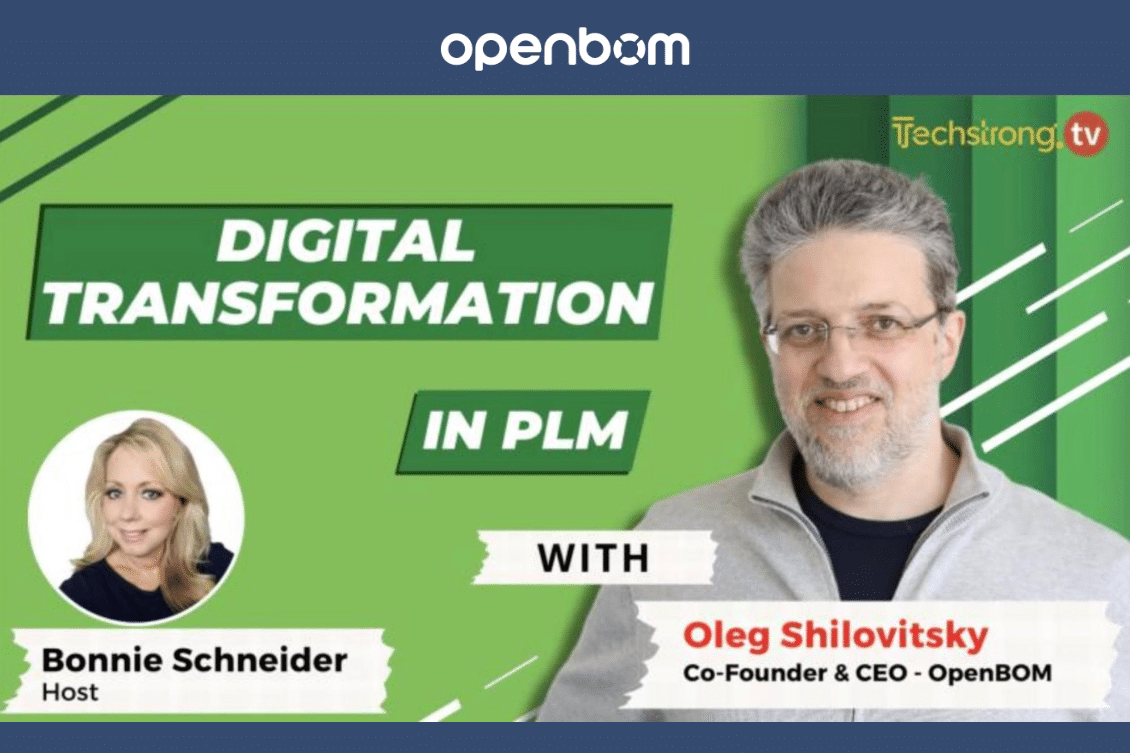
The world of product development has undergone a significant transformation in recent years, with digital technologies revolutionizing how businesses design, manufacture, and distribute products. PDM and PLM are in the middle of the technological innovation agenda of many companies. Many companies are still relying on Excel spreadsheets, files, folders, and legacy databases to manage their product information and to do the planning, production, maintenance, and support. PLM plays a crucial role in ensuring that products are developed and delivered efficiently.
I’m super excited to share my conversation with Bonnie Schneider from Techstrong TV about manufacturing, digital business, and future PLM impact on transformations that are happening in industrial companies. In this blog post, I will take a closer look at my conversation and highlight some key takeaways from the interview.
Techstrong TV Interview
Watch the conversation between Bonnie Schneider and Oleg Shilovitsky on Techstrong TV.
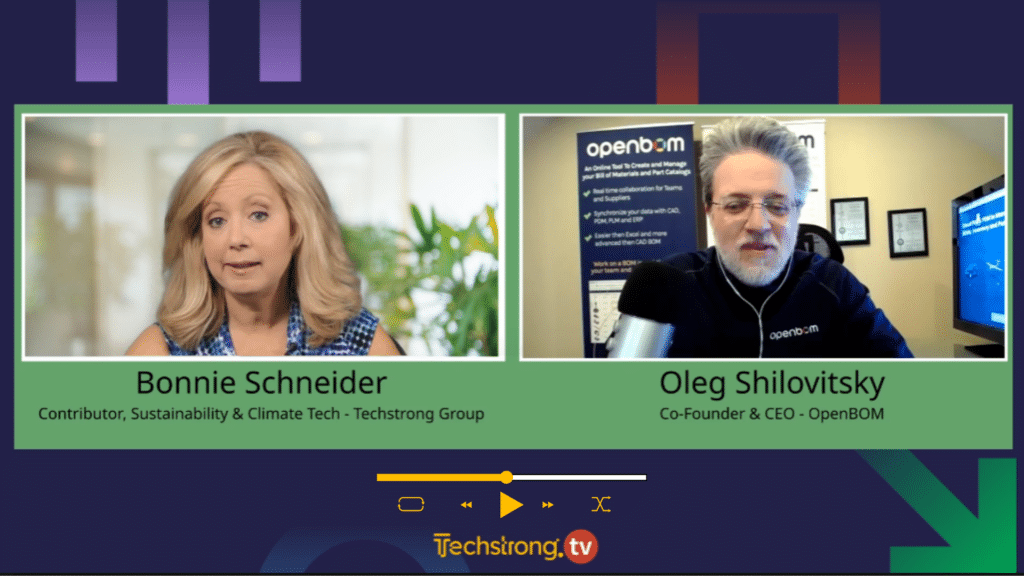
https://techstrong.tv/videos/interviews/digital-transformation-in-plm-oleg-shilovitsky-openbom
Key Points of Future Transformation and PLM Impact
Here are points of how modern PLM can impact future digital transformation and what it means for each of you – industrial company, individual engineer, contractor supplier, and, also, PLM vendor.
Connected Information and Network Actoss Multiple Boundaries
Modern PLM software will be taking a holistic approach to information management in industrial companies connecting multiple lifecycle stages and people working in different companies – OEMs, contractors suppliers also in different lifecycle stages – Design, Production, Sales, and Maintenance. Although it was always a goal of PLM, we are actually coming now from a vision to realization, thanks to modern data management technologies, collaboration, and global connectivity.
What are the challenges of transformation?
The biggest challenge is to move from siloed businesses into a connected world. The entire system is interconnected, but this is also a challenge because all existing products are not built for this complex world. Old fashion PLM approach and the tech was placing PLM in the middle of the company information pyramid. It is a different world these days – connected companies will rule the future of business processes.
What modern PLM brings to the manufacturing world
The key thing about modern PLM is a scalable information model. Getting very complex information organized, shared, and changed in a coordinated way is what future PLM systems will bring to organizations. The reality of information management and access will be changed by making data available and developing businesses around valuable data. All information is interconnected. It sounds simple, but it is not.
How PLM Impact Enterprise Cost Management
Providing an overarching model to manage information is a strong foundation for how to manage enterprise costs. Getting an entire spectrum of data and understanding what impact the product cost is a very complex process. Modern PLM will take an advantage of capturing information from multiple data sources to bring intelligence into cost assessment.
Change Management and Impact Analysis
Lifecycle management for modern complex products is a super critical capabilities. Mechanical, electronics, software- products are complex. A very important function of modern PLM software is to provide a way to make an assessment of decision impact on product design, engineering, and production taking into account all piece of products together. Also, the key element of impact analysis is a holistic data model that allows one to get an entire data representation and gather information from multiple sources and multiple companies together for the purpose of analysis and providing decision support.
Conclusion:
Digital transformation has revolutionized the world of product development and highlighted the importance of modern PLM systems. Oleg Shilovitsky’s conversation with Bonnie Schneider on Techstrong TV highlighted the need for a holistic approach to information management that can connect multiple lifecycle stages and people working in different companies. While challenges exist in moving from siloed businesses to a connected world, modern PLM systems offer scalable information models that can manage complex data and provide intelligence for cost assessment and impact analysis. By embracing digital transformation and modern PLM, industrial companies can position themselves for success in the future of product development.
REGISTER FOR FREE and start a 14 days trial to check how OpenBOM can help.
Best, Oleg
Join our newsletter to receive a weekly portion of news, articles, and tips about OpenBOM and our community.




